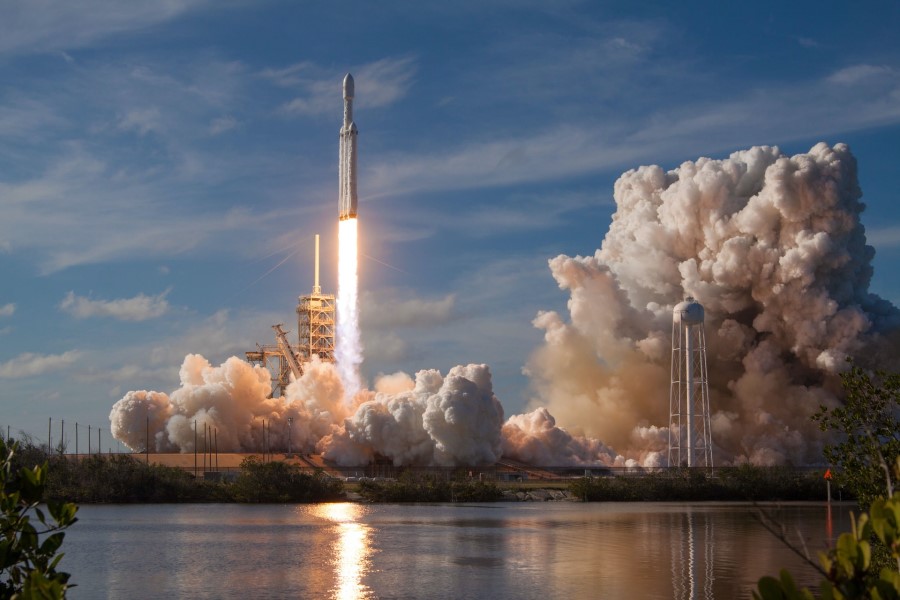
Chloe Billing reflects on her time at this year’s UK Space Conference.
I recently attended the 2023 UK Space Conference (a biennial event) held at the ICC in Belfast. Throughout the three-day conference, diverse sessions—from plenary talks to breakout sessions and short talks—provided comprehensive insights into the UK Space sectors’ strengths and opportunities for growth. Collaboration, innovation, diversity, public engagement, and government support emerged as the key pillars vital for propelling the sector towards a future filled with possibilities and transformative advancements. The key messages I took from the conference are outlined below.
The Role of Academia and not just traditional science
At the centre of all the plenary discussions was academia, recognised as a fundamental catalyst driving innovation within the space sector. It was stressed that academia offers not only a platform for interdisciplinary research but also disseminates knowledge crucial for the advancement of space technology. The collaborative environment fostered by academia, encouraging cross-pollination of ideas and skills across different fields, emerged as a cornerstone for driving the growth in the sector.
It was repeatedly acknowledged that effective collaboration between industry and academia is essential; academia contributes theoretical knowledge and research, while industry provides practical applications and resources vital for driving technological advancements within the space sector.
The multidisciplinary nature of the space sector was highlighted, extending beyond traditional sciences into law, social sciences, medical sciences, and experimental systems. Therefore, challenges and opportunities lie in effectively engaging and leveraging this diverse expertise to address complex space-related issues. The integration of diverse fields offers innovative solutions, enabling the space sector to tackle challenges comprehensively and create impactful outcomes.

Clusters and Ecosystems: Driving Collaboration
The significance of collaborative clusters in fostering an interconnected ecosystem was emphasised. These clusters act as central hubs linking different sectors and expertise, offering resources, knowledge-sharing platforms, and support networks crucial for growth and innovation within the space sector. The emphasis on regional collaboration further enables smaller entities like SMEs to access resources and opportunities, fostering a more collaborative and supportive environment. The Space Cluster Development Programme is helping to steer this growth. The foundation for nurturing these clusters lies in mapping existing expertise and identifying untapped market opportunities, laying the groundwork for a thriving ecosystem.
Technological Shifts: Navigating the Future and Addressing Global Challenges
The conference highlighted the role of space technology in addressing global challenges ‘on earth’ such as transportation, energy, and sustainability, emphasizing the significance of international collaboration to enhance the global impact of the UK space sector.
The adoption of emerging technologies like AI, quantum networking, in-orbit manufacturing, and advanced telecommunications (5G/6G) was highlighted as imperative for driving progress and efficiency within the space sector. Simultaneously, discussions emphasized the importance of addressing ethical considerations such as space debris and privacy concerns to align public perception with technological advancements.
Public Engagement, Resilience, and Societal Impact
Building resilience within the sector involves strengthening supply chains, strategic investment in innovation, and protecting intellectual property. Presenting a compelling narrative about the societal contributions of space technology emerged as crucial for garnering support and funding. Programs aimed at inspiring the younger generation and communicating the relevance of space technology in everyday life were thus acknowledged as vital. Government support through funding, policy formulation, and strategic planning was deemed essential for fostering an environment conducive to growth and innovation within the space sector.
This blog was written by Dr Chloe Billing, Research Fellow, City-REDI / WMREDI, University of Birmingham.
Disclaimer:
The views expressed in this analysis post are those of the authors and not necessarily those of City-REDI / WM REDI or the University of Birmingham.
